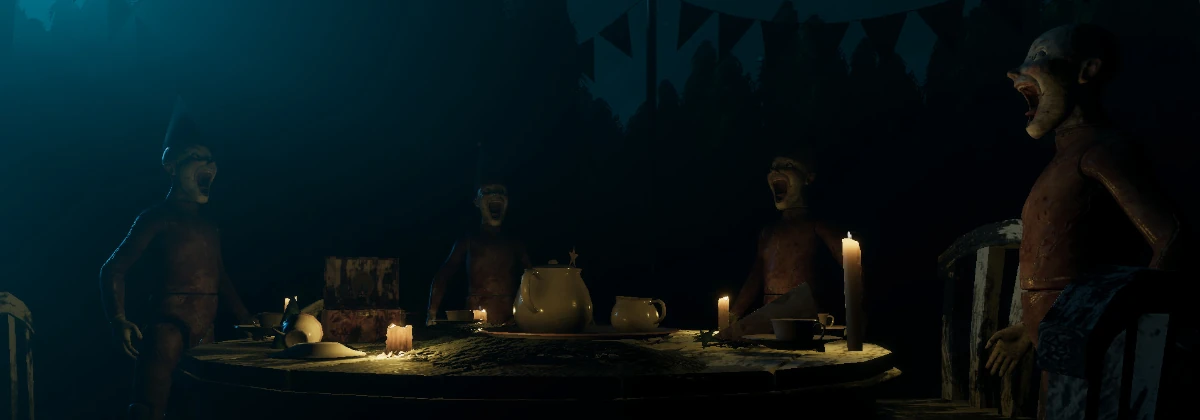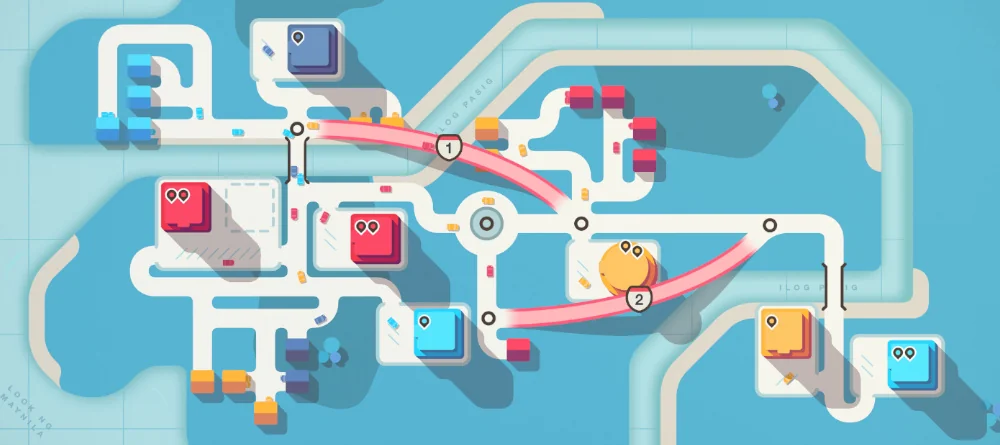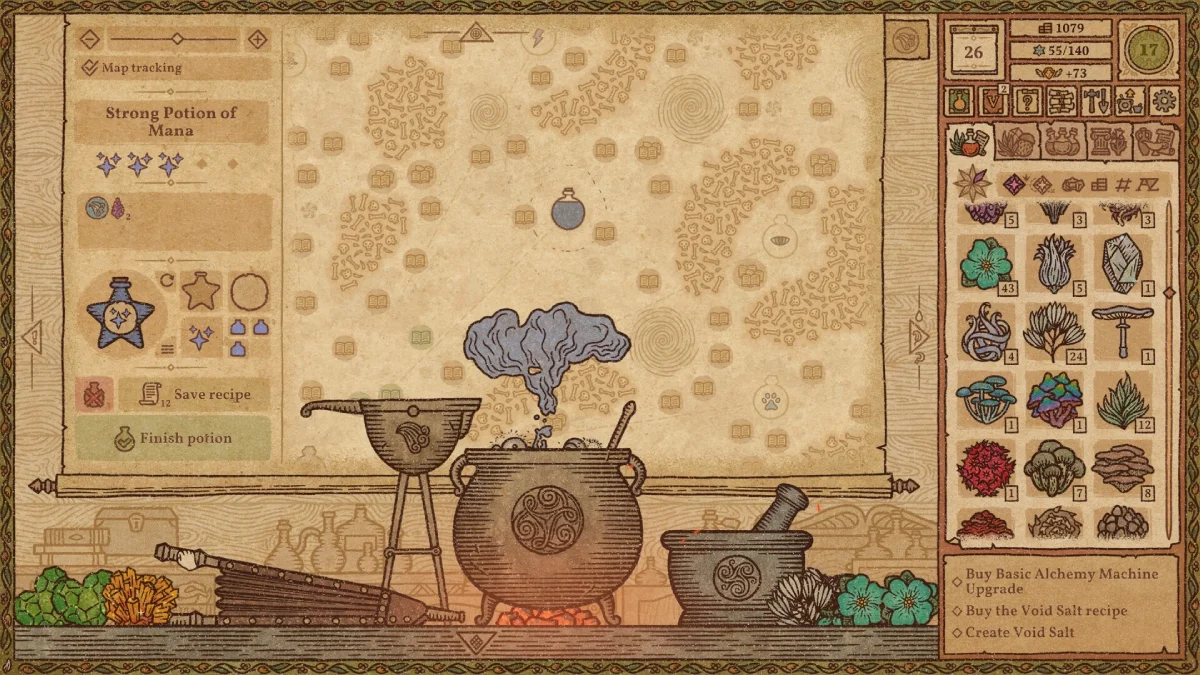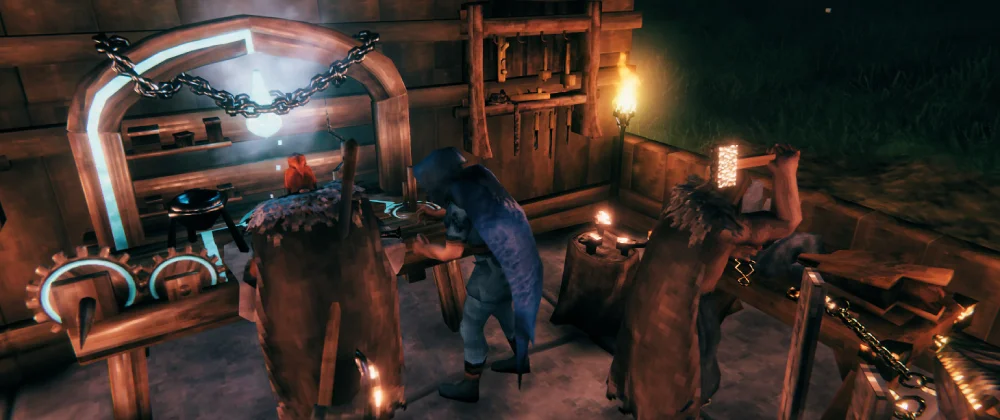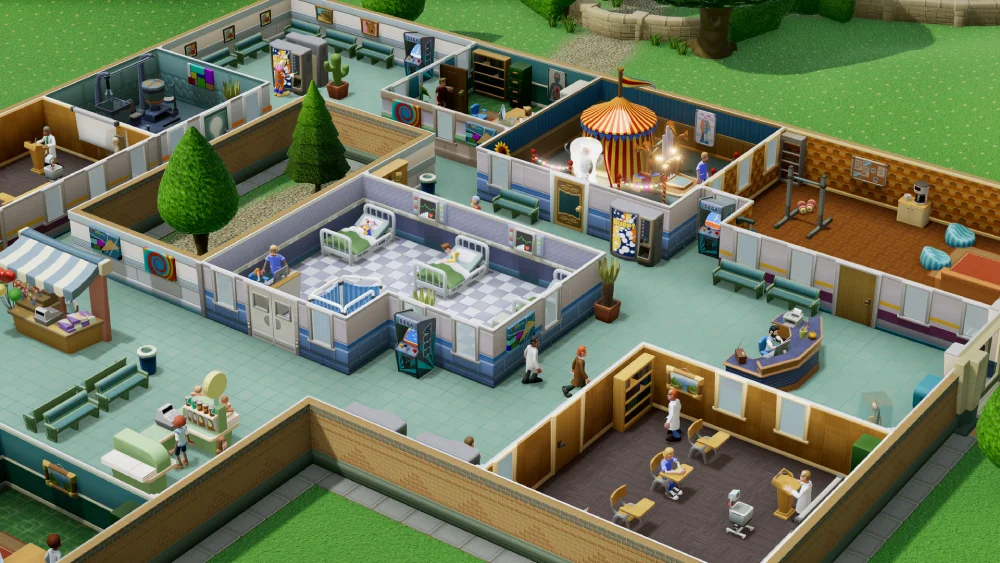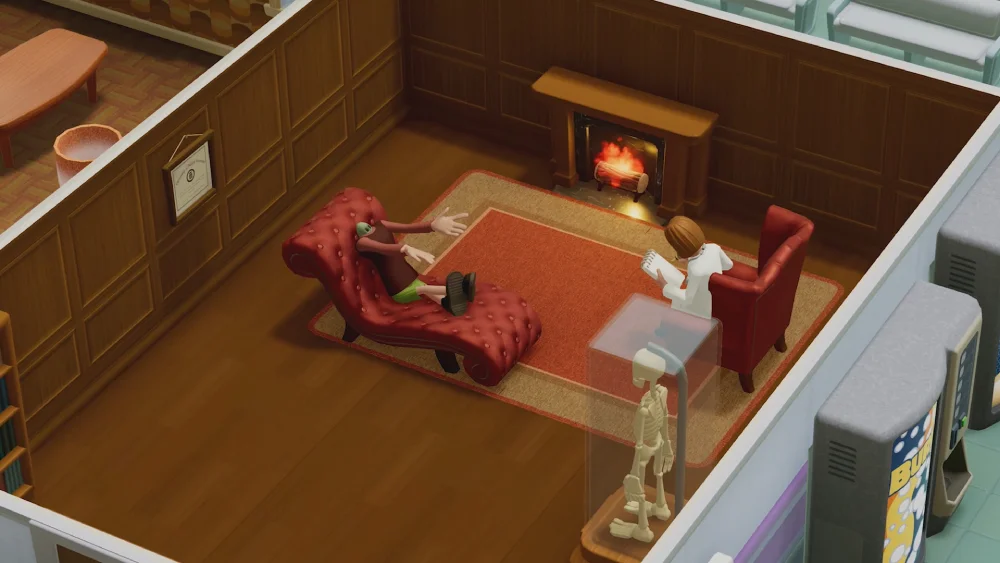
The Psychology Behind Virtual "Jobs": Why They're So Relaxing
You've probably experienced it yourself: after a long, stressful day at school or work, you boot up your favorite game and find yourself... working again? Whether you're tending crops in Stardew Valley, managing a tavern in Tavern Master, or driving trucks across Europe in Euro Truck Simulator 2, you're essentially doing virtual labor. Yet somehow, these digital jobs feel incredibly relaxing rather than exhausting.
This isn't just a quirky gaming phenomenon, there's fascinating psychology behind why we find virtual work so therapeutic. Let's dig into what makes these pixelated professions so appealing.
The Appeal of Clear Goals and Instant Gratification
Real-world tasks often feel overwhelming because they're complex, abstract, or have unclear endpoints. When your teacher assigns a research paper, the path from blank document to finished work can feel daunting. Virtual jobs flip this script entirely.
In Dinkum, when you plant a tree, you know exactly when it'll grow. In PowerWash Simulator, every spray of the hose provides immediate visual feedback—dirt disappears, progress is measurable, and completion is obvious. This creates what psychologists call "task clarity", where the relationship between effort and outcome is crystal clear.
Dr. Jane McGonigal, a game designer and researcher, explains this as "satisfying work", tasks that provide immediate feedback and visible progress. Unlike real jobs where your efforts might not show results for weeks or months, virtual jobs give you that dopamine hit of accomplishment within minutes.
Control in a Chaotic World
High school and adult life can feel unpredictable. Pop quizzes, social drama, family stress, so much feels outside your control. Virtual jobs offer something precious: complete agency over your environment and outcomes.
In My Summer Car, you're not just fixing a vehicle, you're controlling every bolt, every component, every decision. There are no surprise homework assignments in Farming Simulator 25, no difficult customers you can't handle in Papers, Please. This sense of control activates what psychologists call "self-efficacy", the belief that you can successfully perform tasks and achieve goals.
When real life feels chaotic, virtual jobs become a sanctuary where your actions have predictable, positive consequences. You're the master of your digital domain.
The Meditative Quality of Repetitive Tasks
It might seem counterintuitive, but repetitive virtual tasks can be incredibly meditative. The rhythmic nature of chopping wood in Minecraft, the systematic sorting of items in inventory management games, or the steady rhythm of assembly line work in Satisfactory can induce a flow state.
This mirrors real-world activities like knitting, gardening, or even dishwashing. Simple, repetitive tasks that allow our minds to enter a calm, focused state. Dr. Mihaly Csikszentmihalyi, who coined the term "flow state", describes it as a mental state where you're fully immersed in an activity, losing track of time and experiencing reduced anxiety.
Virtual jobs excel at creating these flow states because they eliminate the friction of real-world repetitive tasks—no sore hands from actual dishwashing, no weather interfering with gardening, no real-world consequences if you mess up.
Low Stakes, High Satisfaction
One of the biggest stressors in real life is the weight of consequences. Mess up at your actual job? You might get fired. Fail a test? Your GPA suffers. But virtual jobs exist in a consequence-free environment where failure is just a learning opportunity.
This psychological safety allows you to experiment, relax, and enjoy the process without anxiety. You can crash your truck in Euro Truck Simulator 2 and simply reload a save. Your virtual café can fail in Cook, Serve, Delicious!, and you just start a new day. This removes the cortisol-inducing stress of real-world performance anxiety.
The Satisfaction of Building and Creating
Humans have an innate drive to create and build, it's part of what makes us human. Virtual jobs often tap into this creative satisfaction in ways that real jobs might not. Even mundane virtual tasks often contribute to something larger and more meaningful.
When you're chopping wood in Valheim, you're not just performing a repetitive task—you're gathering resources for your dream Viking hall. When you're delivering packages in DEATH STRANDING DIRECTOR'S CUT, you're literally rebuilding connections between isolated communities. These games frame even simple tasks as part of a larger creative or meaningful project.
This connects to what psychologists call "purpose-driven behavior". We find activities more satisfying when they contribute to something we care about, even if that something is entirely virtual.
The Social Element Without Social Pressure
Many virtual job games include social elements, but with a crucial difference from real-world social interactions: reduced pressure and judgment. In Stardew Valley's multiplayer mode, you can contribute to the group farm at your own pace. In Overcooked! 2, the frantic kitchen chaos is fun rather than stressful because everyone's in the same boat.
These games provide the satisfaction of collaboration and shared achievement without the complex social dynamics that can make real-world group work stressful. There's no office politics in Animal Crossing, no performance reviews in Two Point Hospital.
Digital Escapism That Actually Refreshes
Unlike passive entertainment like TV or social media scrolling, virtual jobs provide what researchers call "active relaxation". You're engaged and focused, but in a low-pressure, rewarding way. This type of engagement can actually be more refreshing than purely passive activities because it gives your mind something constructive to focus on while still allowing you to decompress.
Dr. Cheryl Olson's research on gaming and stress relief shows that interactive, goal-oriented games can be more effective at reducing stress than passive media consumption because they provide a sense of accomplishment alongside relaxation.
The Perfect Work-Life Balance (In Pixels)
Virtual jobs offer something that real jobs often struggle with: perfect work-life balance. You can "work" as much or as little as you want, take breaks whenever you need them, and stop the moment you're no longer having fun. There's no boss demanding overtime in Stardew Valley, no mandatory meetings in Planet Coaster.
This autonomy over your "work" schedule creates a sense of control that many people lack in their real jobs or school schedules. You get the satisfaction of productivity and accomplishment without the stress of external demands and deadlines.
Virtual jobs aren't just a quirky gaming trend—they're a response to real psychological needs that our modern lives often don't fulfill. They provide clear goals, immediate feedback, a sense of control, creative satisfaction, and stress-free social interaction all wrapped up in low-stakes, consequence-free packages.
The next time someone asks why you're "working" in a video game after a long day of actual work, you can explain that you're not just playing—you're engaging in a form of digital therapy that's helping you relax, recharge, and find satisfaction in ways that the real world might not always provide.
So go ahead, tend those virtual crops, serve those digital customers, and build that pixelated empire. Your mental health might just thank you for it.
Ready to dive into some therapeutic virtual work?
Browse our recommendations below:
Simulation Games - Experience realistic virtual worlds and activities
Immersive Sim Games - Deep, interactive environments with multiple solutions
Management Games - Build, organize, and oversee your digital empire
Medical Sim Games - Heal patients and run hospitals without the real-world pressure
Hobby Sim Games - Pursue virtual passions from fishing to photography
Farming Sim Games - Cultivate crops and raise animals in peaceful rural settings
Political Sim Games - Shape nations and policies in consequence-free governance
Latest articles







